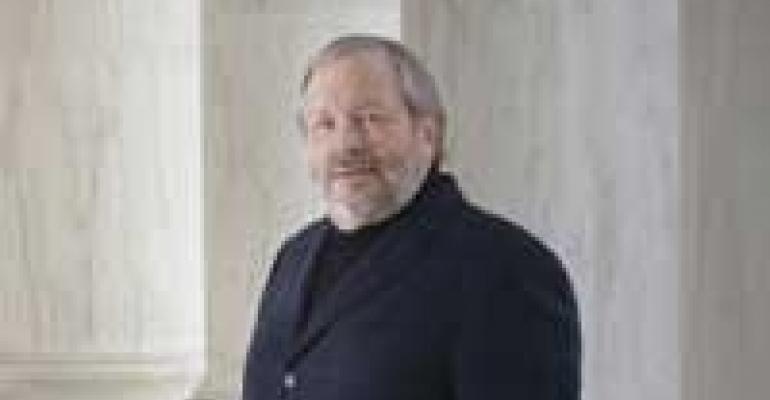
CB Wismar's resume is blue-chip all the way. After stints at some of the biggest names in the business — Carlson Marketing, PGI — he joined 40-million-member AARP (formerly known as the American Association of Retired Persons) in Washington last year as vice president of events. Here he shares his unique perspective on the business of creating indelible events.
SPECIAL EVENTS MAGAZINE: You've said that you are having a ball on the client side; why?
CB WISMAR: The satisfaction has come from the purely serendipitous mixture of a team of truly bright people working in concert to provide information, support, access and experiences to a very large audience. Couple that with the eager encouragement of an executive team that wants to see things done in world-class fashion with measurable results, and every day becomes an adventure.
SPECIAL EVENTS: You bring a unique background to AARP: creative/production, client service, marketing. Does this change how you handle projects?
WISMAR: There's an old bromide: “How many creative directors does it take to change a light bulb?” The answer: “Does it have to be a light bulb?” That's the difference moving from agency to client allows. I truly do not try to drive the team or our great supplier/partners crazy by asking the questions, but having looked at an event from multiple perspectives, it's almost second nature to challenge the status quo, step out of the ruts, and at least talk about something different.
There's likely a second part to that answer as well. We can never get away from the “money” aspect of anything we do. In the special events business, we can fly attendees to the moon, paint the Eiffel Tower red, have the dinner music supplied by the world's greatest orchestra, and give every guest a 3-carat diamond. All it takes is money. Having a sense of what things cost and what their value can be — on all levels of an event — is a tremendous help when trying to bring “How about this?” into the realm of reality.
SPECIAL EVENTS: We're in a rough economy. What will smart event pros be doing in 2009?
WISMAR: In many ways, the impact of what has happened to us in the realm of finance has a “post-9/11” feeling to it. Contracts are being modified and agreements cancelled. 2009 budgets look nothing like 2008 or 2007 budgets, and it appears that imagination has been put on hold and purchasing/accounting has all the votes in any decision. Companies we've worked with for years are suffering. Some will close. Good people will be on the street.
In the midst of this vortex of uneasiness and anxiety, the event “space” takes on a different dimension. There are still messages to be shared. There are still teams that need to be united — perhaps more now than ever. There are still great reasons to (as an old friend used to say) “change the way people think and behave.”
The creativity for the next 24 months is going to be less focused on the colors and the presentation and much more on the message. What is it we're trying to accomplish here, and what's the most effective, efficient, direct and manageable way to do it? Does that apply to a corporate event? Yes. Does it apply to an association function? Yes. Does it apply to a reception or a party? Yes.
The true test of professional resilience in this economic climate is the ability to reconstruct, redesign, re-create, reengineer the essentials of any event and come out with something that has meaning and purpose but is scaled back to its ultimate efficiency.
As for vendors? Please understand that “beating people up” to make them provide goods and services below their cost is a very dangerous and, ultimately, fruitless pursuit. There's a very interesting trait that may be overlooked in the industry when times are good — honesty. Letting everyone know exactly what the budget is will allow everyone to show their best thinking to make an event work.
SPECIAL EVENTS: What's better or worse about the special event business today from when you started?
WISMAR: Technology has certainly changed the special events business and, in many ways, made it better. It's also opened up the industry to many, many people who would not have been able to find a spot 15 or 20 years ago. The proliferation of events has had the unexpected consequence of making the industry seem very accessible to people. Universities now grant certificates and degrees in the event space, and it seems that many who found some satisfaction in putting on the sorority mixer or helping with Aunt Sarah's wedding feel like this is an easy way to make a living. My concern is that we've attracted too many folks who will spend precious time and energy chasing after a dream that may not be real.
Events are not easy. They can be almost overwhelmingly satisfying — but they are not easy.
Contact CB Wismar at [email protected]. For the complete text of this interview, visit our Web site at specialevents.com/mag/cbwismar-special-events.





